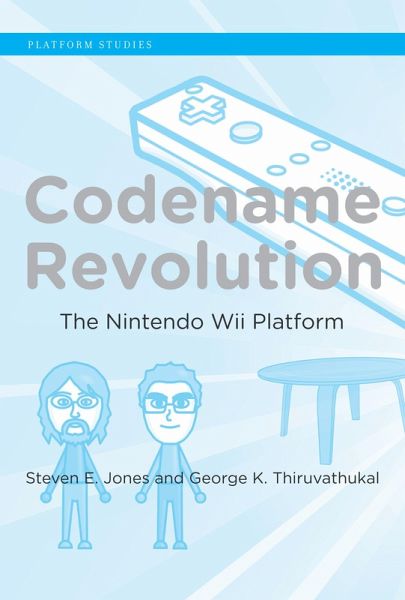
Codename Revolution (eBook, ePUB)
The Nintendo Wii Platform

PAYBACK Punkte
8 °P sammeln!
Get an inside look at the technological, social, and cultural impact of the hugely popular Nintendo Wii! The Nintendo Wii, introduced in 2006, helped usher in a moment of retro-reinvention in video game play. This hugely popular console system, codenamed Revolution during development, signaled a turn away from fully immersive, time-consuming MMORPGs or 40-hour FPS games and back toward family fun in the living room. Players using the wireless motion-sensitive controller (the Wii Remote, or "Wiimote") play with their whole bodies, waving, swinging, swaying. The mimetic interface shifts attentio...
Get an inside look at the technological, social, and cultural impact of the hugely popular Nintendo Wii! The Nintendo Wii, introduced in 2006, helped usher in a moment of retro-reinvention in video game play. This hugely popular console system, codenamed Revolution during development, signaled a turn away from fully immersive, time-consuming MMORPGs or 40-hour FPS games and back toward family fun in the living room. Players using the wireless motion-sensitive controller (the Wii Remote, or "Wiimote") play with their whole bodies, waving, swinging, swaying. The mimetic interface shifts attention from what's on the screen to what's happening in physical space. This book examines the Wii as a system of interrelated hardware and software that was consciously designed to promote social play in physical space. Each chapter of Codename Revolution focuses on a major component of the Wii as a platform: • The console itself, designed to be low-powered and nimble • The iconic Wii Remote • Wii Fit Plus, and its controller, the Wii Balance Board • The Wii Channels interface and Nintendo's distribution system • The Wii as a social platform with multiplayer options and social interaction Finally, the authors connect the Wii's revolution in mimetic interface gaming-which eventually led to the release of Sony's Move and Microsoft's Kinect-to some of the economic and technological conditions that influence the possibility of making something new in this arena of computing and culture.
Dieser Download kann aus rechtlichen Gründen nur mit Rechnungsadresse in A, B, BG, CY, CZ, D, DK, EW, E, FIN, F, GR, HR, H, IRL, I, LT, L, LR, M, NL, PL, P, R, S, SLO, SK ausgeliefert werden.













